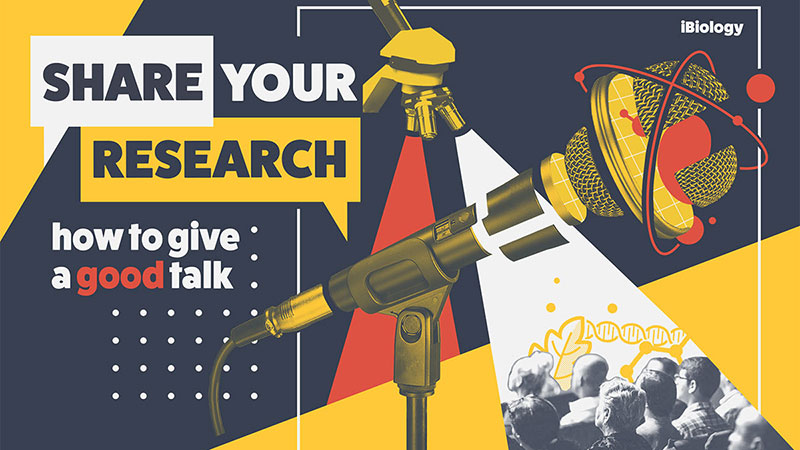There are so many ways to characterize 2020, one of the strangest years most of us have ever lived through. Our Executive Producer, Elliot Kirschner, takes a moment to reflect on the innovation, resilience, and focus that this year has brought to our organization.

2020!??! What to say about a year that will be long remembered, and mourned? All of us at iBiology want to begin by acknowledging the pain and disruption that have come from the global pandemic, deep economic struggles, reckonings on racial and social justice, and the fractious political environment in our home country of the United States, and around the globe.

Like everyone, we are working and living in ways we never would have imagined at the beginning of the year. Early 2020 was a hopeful time for us. Years of work on a variety of projects was coming to fruition. Human Nature, our feature-length documentary on CRISPR, was about to hit movie theaters in dozens of cities. Our latest professional development course, Share Your Research, on how to give a scientific talk, was wrapping up production. We had traveled to Oregon to film an interview with the DNA pioneers Matt Meselson and Frank Stahl for a special short film about their discovery. And we were preparing other innovative video productions. The last few years have been ones of growth and experimentation. We were ready to take what we were learning, and run with it.
The Bay Area, where we have our home base, was one of the first places in the United States to shut down. We were able to get our final video shoot for Share Your Research wrapped two days before all activity stopped. We said so long to each other, not knowing when we would see each other next, never expecting we still wouldn’t have gotten together in person by the year’s end.

Like so many groups and businesses, large and small, Zoom and Slack became our means of communication. Human Nature played a few nights in New York, and then all the showings had to be canceled. We shifted into remote editing for what we had filmed, and started to innovate for the new environment. We built remote recording kits to send out to scientists to record talks for us at home. We worked with educators to see what they needed in a time of turmoil. We partnered with the Chan-Zuckerberg Biohub for what became a remote training session on experimental design. We’ve hosted and appeared on webinars attended by thousands of participants, including likely many of you (thanks!), where we explained what we were doing and how video can be so useful in sharing the stories of science.

This year has brought a keen sense of our own privilege. We have had the funding and broader support to do the work we love to do. At the same time, we saw a rise in misinformation and distrust around science. We saw challenges for distance learning, and we know there is a dire need to make science more accessible and inclusive. Our film about the hurdles women face in science, Picture A Scientist, has had hundreds of remote screenings, and sparked important conversations.
We enter 2021 full of hope. We have seen what can be accomplished remotely. We have had YouTube premieres for new videos. We are profiling more diverse and early-career scientists. We are tackling topical issues, like preprints. We are working more closely with educators to make many of our projects more educator-friendly. And Human Nature, after its theatrical run was cut short, played on NOVA and is now on Netflix.
We understand that what we do is for all of you. We deeply appreciate your support of our mission. While we have all been distanced physically from each other, we feel more connected than ever to those who do, teach, and love science. We have a lot of exciting plans for the coming year, so watch this space for updates. Thank you all. Happy New Year. Stay safe. We’ll see you in 2021.




Smita Jain says
Beautifully captured. Work that I have admired always, work that is so relevant, work that is unique, work that is fun…that’s i-biology. Best wishes for the Year 2021.